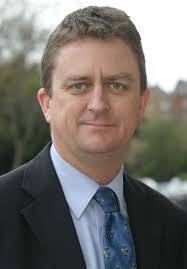
By Katie Ascough - 11 August, 2020

David Quinn, head of the Iona Institute
The Iona Institute, a think-tank based in Dublin, Ireland that promotes the place of marriage and religion in society and is headed by religious and social affairs commentator, David Quinn, has stated that it is “time for a national debate on our birth dearth”.
In an interview on Newstalk Breakfast, David Quinn recently said that the government should look at housing and tax to revamp the critically low birth rate as families cannot afford to have the number of children they desire: “The Irish Fiscal Advisory Council came up with a report a few days ago, showing that by mid-century 2050 – so 30 years into the future – the number of retired people would have doubled from 14 per cent of the population to 27 per cent. And so you have a diminishing percentage of young people having to look after – through tax and through other things – a fast increasing number of retired people. That’s something to be looked at incredibly closely.”
Mr Quinn then stated that the way to fix Ireland’s skewed age ratio is to “help people to have the number of children they want”. He highlighted that the Organisation for Economic Co-operation and Development (OECD), an international policy-making organisation, “does surveys about this kind of thing, and discovers actually that families are having fewer children than they’d like because they can’t afford it”.
Mr Quinn also pointed out that “this was a big issue during the election … affordable housing is obviously a big thing because housing for many, particularly young families, has become unaffordable. We need to look at what other countries are doing and see what works.”
Mr Quinn pointed to the example of Hungary, where “if you get to four children you pay no more income tax, they give very generous loans to families who want to buy houses, buy cars – they’re also increasing the amount of money given to childcare.
“By the way, none of this may actually work – because maybe there’s some way we structurally set up our economies, and also people marrying very late, may mean that we find it incredibly difficult to do something about the fertility rate. But if we don’t, we face inevitable and rapid ageing, and it is young people that it would impact on most severely.”
When challenged on trends suggesting over-population as well as concerns over climate change, the leader of the institute responded: “If we even manage to get the birth rate to replacement rate – so that is two people effectively replace themselves – at the moment it’s gone below replacement rate.
As the years roll on and we de-carbonise the economy, then the carbon footprint of each individual will reduce. But the people above all who need to have this debate are younger people, because they’re the ones who are going to be most impacted.”
You can read a report on the item here or scroll down to hear the recording of the interview.